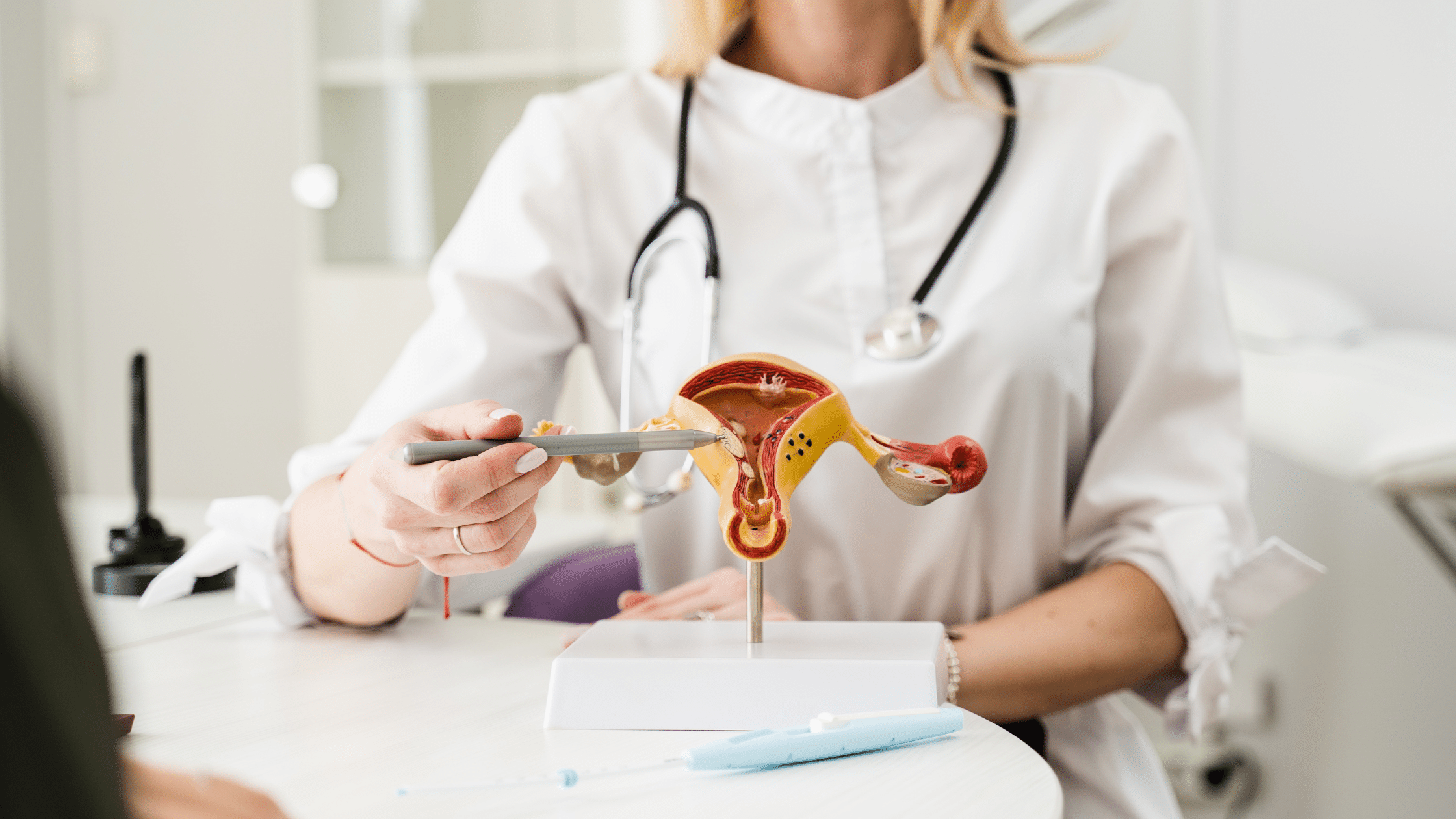Endometriosis affects millions of women across the U.S., yet its exact cause remains unclear. While…

The Four Stages of Endometriosis Explained
Endometriosis is a common condition where the type of tissue that forms the lining of the uterus is also found outside of the uterus. Endometriosis occurs in one out of ten women who are within their reproductive age. However, it is most commonly diagnosed in women between the ages of 30-40 and can fall into 4 endometriosis stages or categories.
Living with endometriosis can be painful and frightening, whether you just got diagnosed or if you’ve had the diagnosis for a while. The important thing to understand is that your comfort level can be assisted with help from a medical professional, like the specialists here at the Endometriosis Treatment Center of America.
Endometriosis Stages Explained: An Overview of the Stage System
The stages of endometriosis are meant to measure the extent of the implants, or tissue growths, in your body. The disease does not necessarily progress neatly from one stage to the next, and doctors aren’t sure why some women have more severe cases than others. But no matter what stage you’re in, you deserve treatment to address the life-altering symptoms you may feel at any stage.
While certain symptoms are shared by women with endometriosis, each person’s experience is unique. Some women may not even experience symptoms at all. That said, some common symptoms of endometriosis include:
- Pelvic Pain
- Usually during or just before menstrual periods
- May worsen during periods and still be present between menstrual cycles
- May get worse over time
- While urinating or bowel movements, especially during periods
- During or after sex
- Infertility
- Ovarian Cysts or “Chocolate Cysts” (read more below)
Stage 1 Endometriosis: Minimal
Stage 1 of endometriosis is considered minimal because the implants are small, shallow, and smaller in number. It’s important to note that the level of your discomfort may not always align with the severity of the disease. Just because a woman is diagnosed with stage 1 endometriosis does not mean that her pain level is minimal or that it does not affect her everyday life.
Stage 2 Endometriosis: Mild
Stage 2 of endometriosis is considered mild. Implants in stage 2 may be deeper than the implants that are commonly found in stage 1 endometriosis. At this stage, scarring may also begin to occur. Scarring can sometimes cause issues with infertility, so expert and careful attention to your treatment plan is especially important as these stages increase in severity.
Stage 3 Endometriosis: Moderate
Stage 3 of endometriosis is considered moderate. There are many deep endometrial implants in stage 3, and you may develop cysts on at least one ovary. Endometrial cysts form on an ovary when the tissue attaches to it, and it then sheds blood and tissue. Blood collects and turns brown, which gives these cysts the name “chocolate cysts.”
Thin bands of tissue called filmy adhesions may also form in this stage, which may bind organs together. These adhesions are deep scar tissues that form when the body tries to heal from endometriosis. Adhesions can cause more uncomfortable and disruptive symptoms such as nausea and sharp stabbing pains.
Stage 4 Endometriosis: Severe
Stage 4 of endometriosis is considered severe. This stage is characterized by many deep endometrial implants and large cysts on at least one ovary. Thick adhesions appear throughout the pelvic region, causing widespread scar tissue and an increased risk of infertility.
Treatments for Endometriosis
When a woman goes through menopause, her endometriosis symptoms usually disappear. However, for many women, waiting isn’t an option—nor should it have to be. Several different options are available to treat endometriosis pain at every stage.
Because each woman will react differently to these options, there is no one-size-fits-all solution for each stage. That’s why working with a compassionate doctor is important—we’ll stick with you until we find the solution that works for you.
Medicinal Interventions
Endometriosis can be treated with certain medications, including pain relievers, hormonal therapies, and more. Common medications include:
- Nonsteroidal anti-inflammatory drugs (NSAIDs) for pain
- Hormonal birth control
- Aromatase inhibitors to lower estrogen levels
- Muscle relaxers or anti-convulsants to suppress pelvic floor spasms
- Certain antidepressants
Therapeutic Interventions
Pain caused by endometriosis can be treated with the following interventional therapies:
- Nerve blocks
- Anesthetic muscle injections with or without corticosteroids to block trigger points
- Physical therapy to help control and relax pelvic muscles
- Behavioral therapy to help manage stress and pain
- Botox® Injections to freeze pelvic floor muscle spasms
Surgical Interventions
The purpose of endometriosis surgery is both to diagnose and to remove endometriosis. Often, it’s used before medications, since it’s used as a diagnostic tool. If medications do not relieve pain, robotic excision of endometriosis is the most effective way to remove endometrial tissue without risking further infertility issues. At ETCOA, we’re the experts in endometriosis excision—and we’re here to help you find out if endometriosis surgery is right for you
Compassionate Care at Every Stage
Though there is no cure for endometriosis, cutting-edge treatments can help manage symptoms of endometriosis and give you back your life. Choosing a dedicated endometriosis specialist to help can be a game-changer with your journey. Here at ETCOA, we pride ourselves on helping women live with endometriosis and manage their pain so that they can continue to flourish in their lives.
Endometriosis Treatment Center of America: Compassionate Women’s Health in Michigan and Beyond
For help managing your endometriosis pain please contact us, whether you’re living in Michigan or visiting from out of state. We’re here to listen and help you manage your pain. With Endometriosis Treatment Center of America, you’re not alone! Give us a call today—for our Lake Orion, MI, location, call (248) 609-6040. For our Birmingham, MI, location, call (248) 731-2155.



